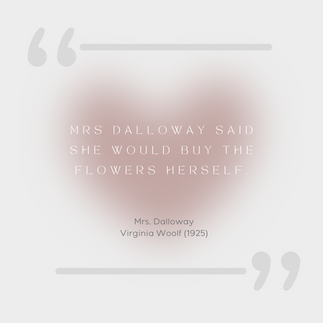First Sentences: A Promise
- Donna Norman Carbone

- Oct 7, 2023
- 4 min read

This first sentence of any story is like a promise to the reader. Can you recall any first sentences you’ve read that have stayed with you? I certainly can. They hook me. They invite me into the world of the story.
There aren’t any rules for first sentences, per se. Some begin at the beginning while others begin at the end. Some establish character: others establish setting. Some identify the stakes or conflict. Some are short, telegraphic sentences while others are long and complex. No matter what, first sentences need to create an atmosphere and they must invite the reader’s curiosity.
These are some first sentences from literary novels that have stood out to me over the years.
“You better not never tell nobody but God. It’d kill your mammy.”
The Color Purple, Alice Walker (1982)
“In my younger and more vulnerable years my father gave me some advice that I've been turning over in my mind ever since. ‘Whenever you feel like criticizing any one,’ he told me, ‘ just remember that all the people in this world haven't had the advantages that you've had.’"
The Great Gatsby, F. Scott Fitzgerald (1925)
“Mrs Dalloway said she would buy the flowers herself.”
Mrs. Dalloway, Virginia Woolf (1925)
“To begin my life with the beginning of my life, I record that I was born (as I have been informed and believe) on a Friday, at twelve o'clock at night.”
David Copperfield, Charles Dickens (1849)
“If you really want to hear about it, the first thing you'll probably want to know is where I was born, and what my lousy childhood was like, and how my parents were occupied and all before they had me, and all that David Copperfield kind of crap, but I don't feel like going into it, if you want to know the truth.”
The Catcher in the Rye, J.D. Salinger (1951)
“Quiet as it’s kept, there were no marigolds in the fall of 1941.”
The Bluest Eye,Toni Morrison (1970)
In reviewing these sentences, what strikes me is that the narrator’s voice is so prominent in each of them. As readers, we know something about each of the characters from the onset.
Celie is devout. She keeps secrets.
Nick is a deep thinker. He no longer considers himself vulnerable. He also considers himself privileged which can’t be said for everyone.
Mrs. Dalloway is independent. One could also infer that she employs others to do things for her, but she’d rather do them herself.
David self-evaluates. He considers the characteristics of a hero and wonders if he is one himself, though he isn’t inclined to impose his own opinion on others.
Holden is negative, even if we don’t know yet that he’s a teenager–he’s old enough to reflect. His childhood wasn’t a good one, he feels neglected by his parents and he certainly isn’t an idealist. He is a reader though who alludes to my previous example
After a series of short, repetitive sentences about Dick and Jane, the popular reading series of the 1970s, Pecola Breedlove’s story begins with an ominous line suggesting that this novel would be anything but bright and ordinary, and immediately, we’re given 1941 which invokes a mood of the Depression.
In thinking about the first sentences of novels, I started thinking about my own. I went back to the many different drafts I could find from All That is Sacred, a novel I first began writing ten years ago.
I have copied some below and will talk about my goals (and flaws) for the first sentences of drafts I ultimately cut or moved to another place in the novel.
Their friendship began on the day they lost their vanity for the first time.
[Here, I wanted to establish a long-standing friendship and the fact that they had been
through some life altering events together]
It has been a bone chilling March; I’m still waiting for the lamb to usher in its warmth.
[Not only did I want to allude to setting, I wanted to create a juxtaposing mood of cold and warmth
which mirrors some of the themes in my novel]
Fear sat beside five freshmen girls, blindfolded, at the top of a hill.
[I liked this one. It places the characters, five girls, in a vulnerable setting, but
ultimately I needed to move this scene]
I see my friends in flashes of light.
[This one, I believe puts the reader in a position of dis-
comfort. I don’t believe there’s enough detail, here, to
give the reader something to hold onto. It may also be
a bit misleading]
Remnants of croissant sandwiches and watermelon rinds lay before us on the glass-top patio table by the pool.
[In this one, I wanted to create an atmosphere of things leftover, unattended
to. Ultimately, I don’t think this is enough of a hook]
To leave late, like this, and so spontaneously is something we just don’t do.
[While this does cue the reader into a change that’s occurring, last minute and on a
whim, it takes the focus off of the main characters putting it on a supporting relationship]
I didn’t use any of these for the first lines of the book in its final, published version. In fact, (fun fact, maybe) my content editor had me write an entire new first chapter because she thought the story didn’t begin in the right place. While I was taken aback, at first, she was absolutely correct and I love the new beginning. It makes me wonder: What promises will it hold?
I’d love for you to post in the comments below a first sentence you love from a story you’ve read.





















Comments